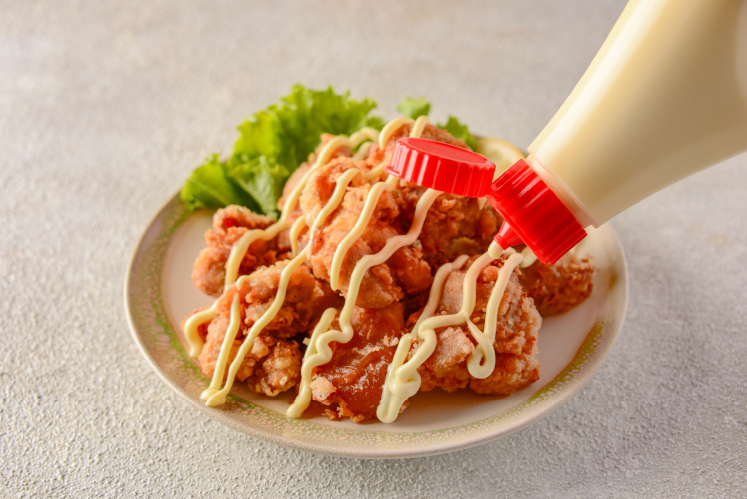What are the Ingredients in Mayonnaise? Discover Now!
Written By James Morgan
As barbecue enthusiasts, we often focus on meats, spices, and grilling techniques, but what about our beloved sauces? One sauce that stands out is mayonnaise. It might seem simple, yet it offers a rich, creamy texture that can elevate countless dishes.
When pondering the question, 'what are the ingredients in mayonnaise?', you might be surprised to learn that mayonnaise is more than just oil and eggs. Lets deepen our understanding of this versatile condiment and uncover how it plays a pivotal role in outdoor grilling and picnic spreads.

Mayonnaise: A Brief Overview
Mayonnaise is an emulsified sauce, where oil is blended into water-based ingredients. Generally, the base includes three main components: oil, eggs, and acid. This mix forms the foundation, but countless variations can occur based on additional flavors.
It is fascinating how mayonnaise enriches dips, salads, and sandwiches, becoming a versatile addition to any barbecue spread. Whether youre making a potato salad or a spectacular coleslaw, the balance of ingredients makes a difference.
Main Ingredients of Mayonnaise
1. Eggs: The primary emulsifier in mayonnaise, eggs provide structure and creaminess. Most recipes call for egg yolks specifically, as they contain lecithin, a natural emulsifier that helps stabilize the mixture.
2. Oil: The choice of oil affects the taste significantly. Common options include vegetable oil, canola oil, olive oil, or any neutral oil. The amount of oil added gradually influences the thickness and creaminess.
3. Vinegar or Lemon Juice: Acids are essential for balancing flavors. Vinegar is often used, and various types can add distinct notes, such as white vinegar, apple cider vinegar, or even flavored variations. Lemon juice serves as a fresh and zesty alternative.
4. Seasonings: While traditional mayonnaise consists of just the above ingredients, it's common to add salt, mustard, or even sugar for enhanced flavor. With creativity, you can personalize your mayo!

How Mayonnaise Fits into Barbecuing
Mayonnaise amplifies your grilling experiences in various ways. You may not realize it, but this creamy condiment can really elevate your barbecue game! How, you ask?
1. Marinating Meats
Using mayonnaise as a marinade can add a unique twist to grilled meats. The emulsified structure allows it to adhere better, ensuring that spices and flavors infuse into the protein more effectively.
2. Dressing for Salads
Coleslaw or potato salad? Both get an exciting upgrade with a hefty dollop of mayonnaise. It adds creaminess and flavor depth that cant be overlooked.
3. Dips and Spreads
Transform your tailgate recipes with creamy dips. Mix mayonnaise with spices, herbs, or even garlic for a quick and easy tasty dip that pairs well with grilled veggies or chips.

Crafting Your Own Mayonnaise
If youre venturing into the world of homemade condiments, making your own mayonnaise is not only rewarding but also incredibly simple. You can control the ingredients, ensuring freshness and quality.
All you need are the essential ingredients: oil, eggs, and acid. Blend them together with a whisk or a food processor, and you can customize flavors to suit your preferences. Don't forget to check this recipe for making mayonnaise using a blender!

Health Benefits of Mayonnaise
Believe it or not, mayonnaise has some surprising health benefits, thanks to its core ingredients. For example, eggs provide protein and essential fatty acids, while healthy oils can supply antioxidants. However, moderation is key since mayonnaise can be calorie-dense.
To delve deeper, you can read more about the health benefits of mayonnaise and how it can fit into various dietary plans.
Frequently Asked Questions
1. Can I make mayonnaise without eggs?
Yes! There are various vegan mayonnaise recipes available that substitute eggs with ingredients like silken tofu or aquafaba (the liquid from canned chickpeas).
2. How should I store mayonnaise?
Store homemade mayonnaise in an airtight container in the refrigerator for up to a week. Commercial mayonnaise typically has a longer shelf life due to preservatives.
3. Is mayonnaise gluten-free?
Yes, most mayonnaise is gluten-free! Check labels to ensure no gluten-containing ingredients are included, especially in flavored varieties.
As an Amazon Associate, I earn from qualifying purchases.



